

10 Things I Look for in a Founder
I recognize the folly in writing a post with this title. There is no one-size-fits-all with anything, especially with people. But after working and meeting with thousands of founders throughout my career and while at BCV, I hope to distill the key characteristics that I have come to gravitate around and demystify this process in hopes of helping founders everywhere.
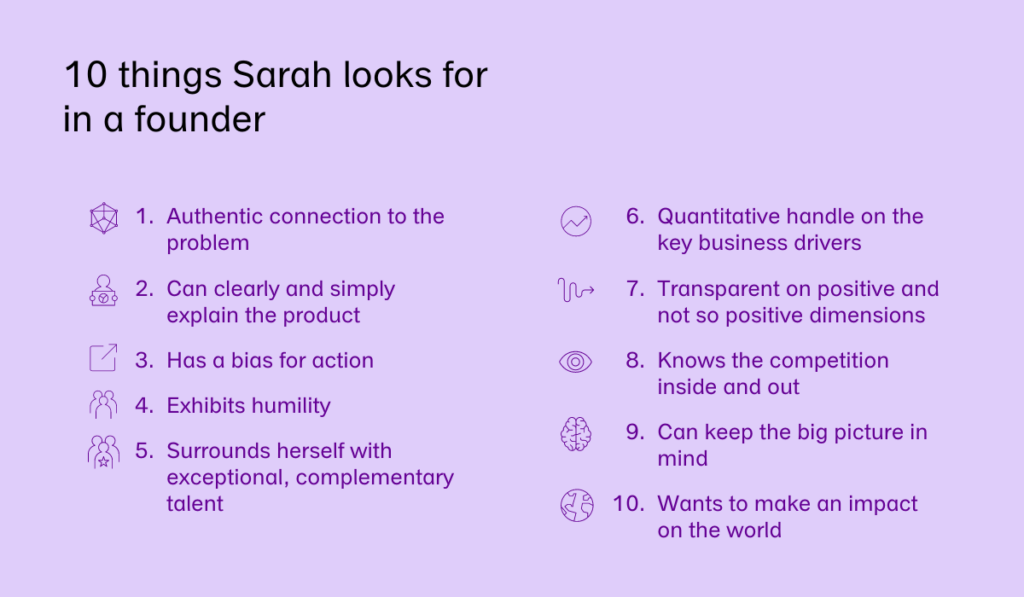
Here’s how to think about it: Each of the considerations below represents a tile in the mosaic of an individual. ‘Art is in the eye of a beholder’ and so, too, is the reception to these characteristics highly subjective. As I’m getting to know a founder, I keep track of these characteristics over time. Other customary diligence includes the product review, financial analysis, market sizing, customer calls, and returns analysis. To me, the founder mosaic is one (very important, but not the only) consideration for conviction in a deal.
Being very upfront about the limitations of this list, I still share this for two reasons:
First, I think it’s important to have explicit conversations around what VCs look for in founders. It’s old news that the industry is rife with bias (we all have it), and the ways we can work through it are by making explicit how we are assessing founders.
Second, venture is a two-way street. As a founder, you will want to assess the culture of firm you’re in conversations with, who you will be working with, and why they are asking certain kinds of questions about you. I know that even more important than my assessment of a founder is the founder’s assessment of me and the company they represent! I hope this reveals a bit about my values.
So, here goes:
1. Authentic connection to the problem: I love founders who have direct experience with the problem they are trying to solve. It may be through working at a company in the same market, experiencing the painpoint directly at work or in life, or growing up in a family in the industry.
For example, Hannah Olson founded Disclo, a health disclosure and compliance management platform for companies, after experiencing her own challenges with navigating the workforce while having a chronic illness. This type of lived experience offers an embedded network of friends and colleagues who can support and/or work for the company, a clear vision for the product, and makes it easier to connect with customers. Additionally, seeing a problem firsthand can form the passion that makes a project worth dedicating years to solve.
2. Can clearly and simply explain the product: Founders are experts of the product they’re building and the market they’re building in. This can be a blessing and a curse. On the one hand, great companies do something better and differently than others in the market, so a precise understanding is necessary to build differentiation.
On the other hand, sometimes this can translate to taking for granted basic storytelling necessary to understand what makes them unique to those with less knowledge. Therefore, it’s helpful when founders remember to make the product and customer value proposition accessible to those who are not experts in a market. Practice makes perfect, and learning to perfect the story for a wide variety of audiences helps support the company’s long-term success because the founder will also tell this story to customers, recruits, and potential investors.
3. Has a Bias for action: Creating something out of nothing is no small feat. Every step of the way, there are more reasons why something should not work than it possibly could, the least of which is inertia. A founder’s bias for action is what cuts through the inertia and creates value for customers and, thereby, in a company. Enter: speed of execution (especially during those early conversations around fundraising).
Areas where this matters most are responding quickly to essential inputs, e.g., customer feedback, partner strategy questions, or interactions with potential investors during fundraising. The fact is that most people have short attention spans (it’s human nature), so when you have someone’s attention, there’s a short window to act and capitalize on this interest.

4. Exhibits Humility: Humility is the ability of a founder to see that he can learn from others. This is so important because there will always be new and unexpected challenges on the path toward building a huge and successful company, and those who succeed don’t do it alone. One gift of humility is curiosity — the interest in learning from the experiences of others, which is critical for continued growth and good decision-making.
Growing a company is a series of tradeoffs: which customer requests are important enough to delay the roadmap? How much of a discount to give a lighthouse customer (or none at all)? How to balance growth with profitability? Making the “right” choice requires curiosity and empathy to understand the existence and merit of the different paths, both gifts of humility. One way I test humility is asking about something that went wrong, and seeing whether the CEO asks ‘what can I learn?’, or asks ‘who is to blame?’.
5. Surrounds herself with exceptional, complementary talent: No CEO can do it alone. By the time the company is at the growth stage, the founder has hopefully hired multiple members of her management team. Great team members are impressive in their own right, and complement each other well. I always learn a lot from interacting with these other team members.
Growth-stage companies are complex organizations that require incredible specialized knowledge. It’s a great sign when founders involve other members of their team in the fundraise so you can see how the team works together. You can learn a lot from who responds to questions first, and who defers, when the full team is present.
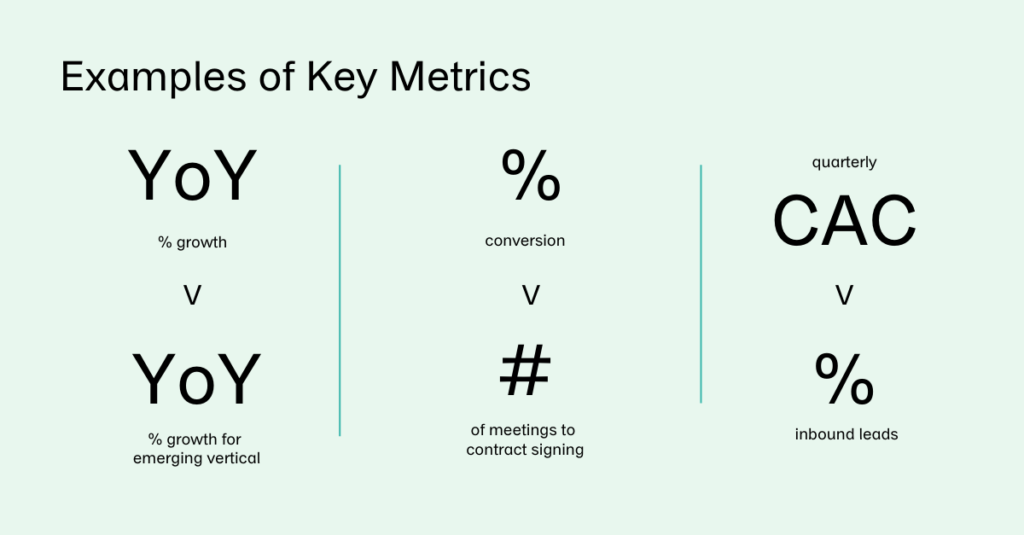
6. Quantitative handle on the key business drivers: There are a countless number of metrics to track for a growth stage company: YoY % growth, % attach rate, CAC last quarter, CAC the quarter before that, % conversion, ASP, ACV, ACV last year, ACV next year… the list goes on. Not every detail matters, but some matter a lot. It’s important that the founder has a sense of the top few metrics that are the northstar for the business, and can speak to them fluently.
The founder’s clarity is the rallying cry for the business, and shows how they would consider tradeoffs. Bonus points when a founder lights up when he explains how he tracks these, e.g. on a custom internal dashboard, on a ticker on the wall of the office, or in a weekly email from the Chief of Staff, and how they’re calculated.
7. Transparent on positive and not so positive dimensions: The best VC/founder relationships don’t sugar coat things. Why? Sharing “bad” news is even more important than sharing the good stuff because it directs action and attention to the most important pressure points in the company. The fundraising process is a good microcosm of what working with someone will be like on this dimension. While it’s human nature to present facts in the particular arrangement that’s most complimentary during the fundraising process, business concerns shouldn’t be buried.
Similarly, I love to read what did not go well in the past three months in quarterly investor updates, and how the founder plans to adjust anew to meet the challenge going forward. Someone who misleads an investor, even slightly, might also do that in sales processes, which is a good way to over promise and under deliver.
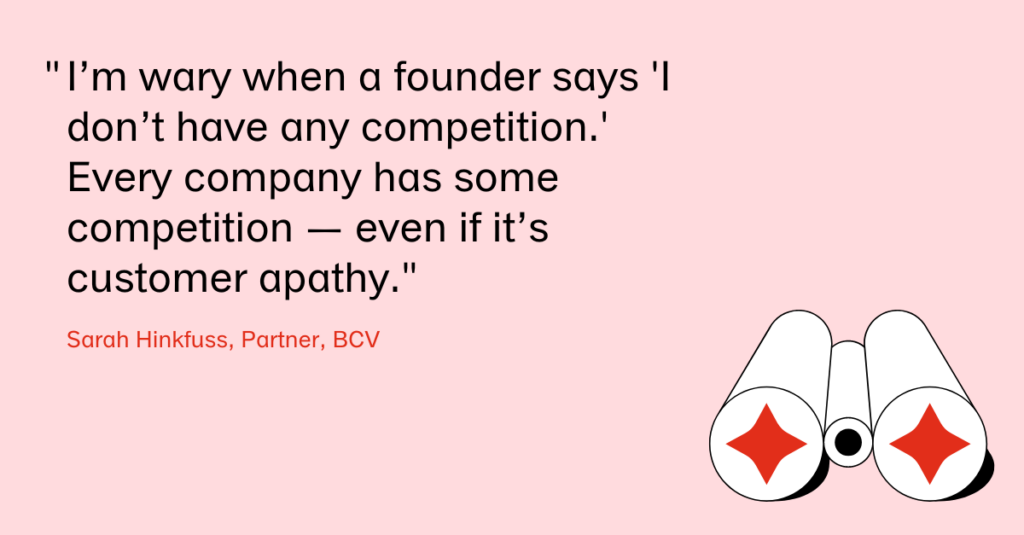
8. Knows the competition inside and out: I’m wary when a founder says “I don’t have any competition.” Every company has some competition — even if it’s customer apathy. The best founders are happy to talk about competition because they simultaneously have so much confidence in their product and market strategy that they want to highlight the differences, and they realize that they have much to learn from competition.
For example, Wade Arnold, founder of Moov Financial, could reasonably say that the company is in its own class as a unified platform for developers that is a dual acquirer and issuer processor, as well as store of funds. But, Wade has a comprehensive market map in his head of the primary (and secondary) competitors in each of the spaces he competes – all the better to compete with them!
9. Can keep the big picture in mind: Especially in today’s market, it can take many years to build a successful company, and many more to prepare for exit. Tenacity is an important quality, the ability to work swiftly in the face of obstacles toward clarity, resolution, and results. At the same time, a founder who only works risks burning out before the job is done.
The big picture is winning, and that requires balance. Balance means different things for different people, and could include sports like cycling, running, or surfing, time with family and/or pets, daily practices like meditation or yoga, or travel. I love connecting with founders on what makes them excited outside of work – spending time together not around a whiteboard can be critical to building trust for the long run. Special thanks to those of you who share photos of your children!
10. Wants to make an impact on the world: Founders need a bold, ambitious vision for what her company can do to change the market and the lives of its customers. I’m not just looking for an incremental idea to ameliorate a problem, but a transformational solution. Founders like this inspire me, and make me want to join them to support their vision for what the future can be.
Related Insights

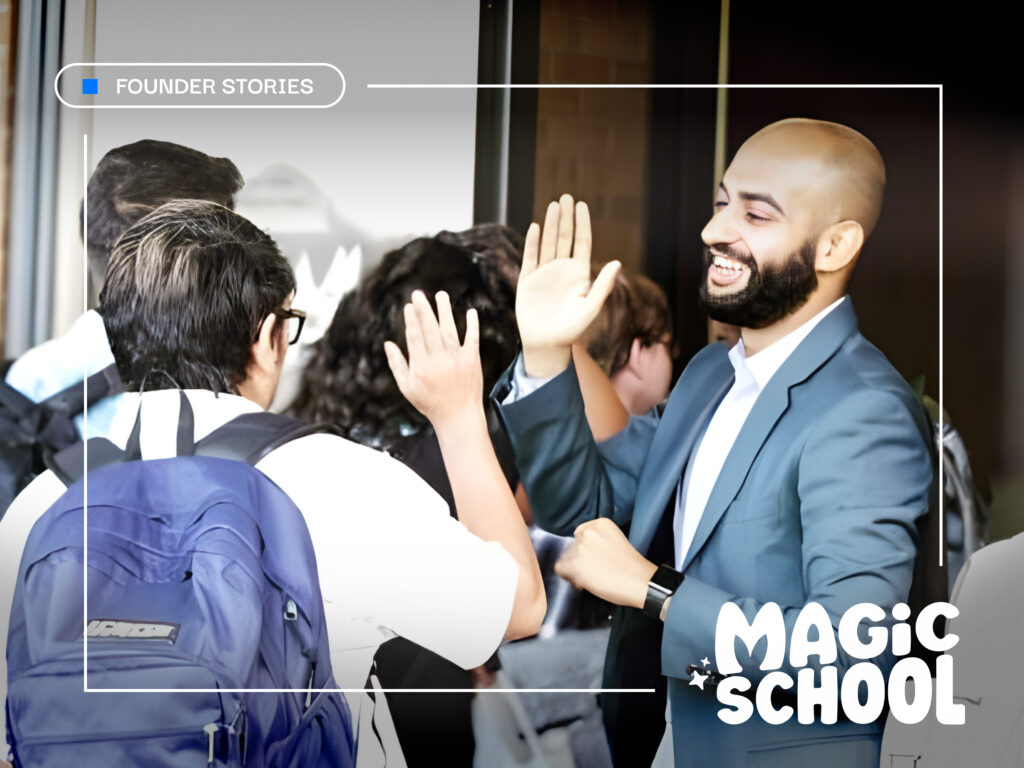
MagicSchool’s AI-Powered Software Is Ushering in the Future of K-12 Teaching
MagicSchool founder Adeel Khan is a former teacher and principal whose AI platform is saving teachers time, fighting burnout, and helping schools build responsible AI experiences for students.
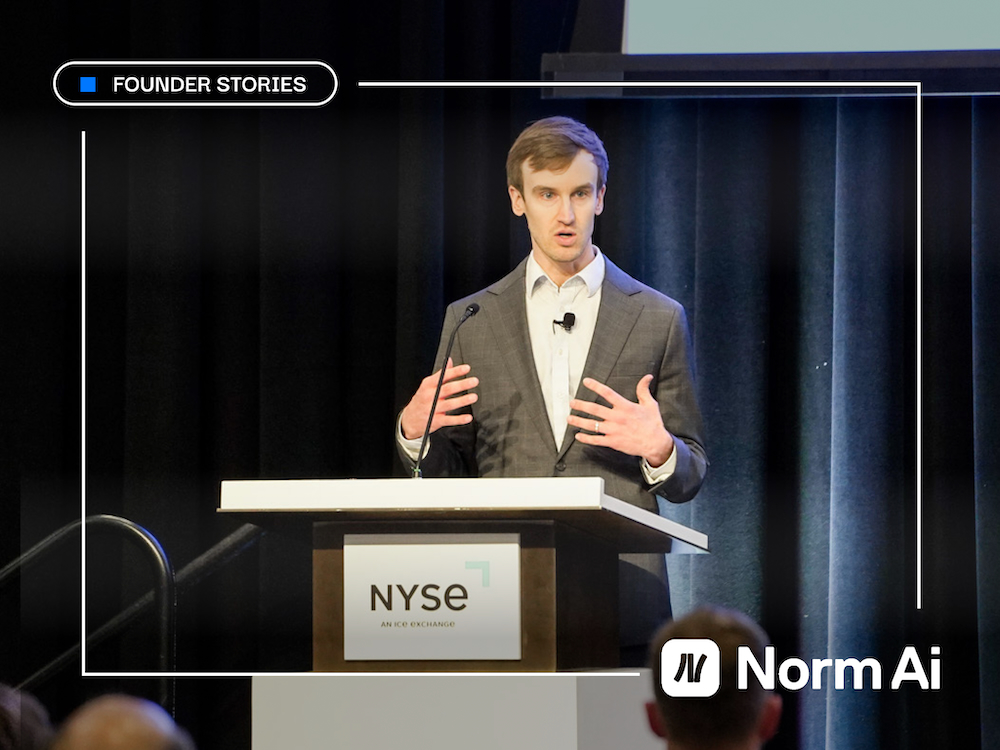
Norm Ai Is Using AI to Clean Up the ‘Sludge’ of Regulatory Compliance
John Nay, a founder at the intersection of AI and law, built Norm Ai as a solution to aid compliance officers in highly regulated industries.
